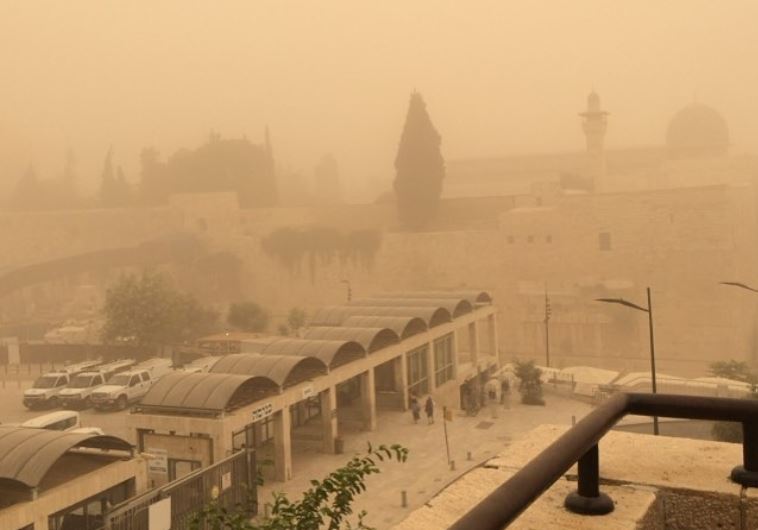Major dust storm causes damage to health of chronically ill
Dust particles in the air may cause high blood pressure, difficulty breathing and the allergy-related production of phlegm.
 Hazy, dusty conditions in Israel(photo credit: Lahav Harkov)Updated:
Hazy, dusty conditions in Israel(photo credit: Lahav Harkov)Updated: